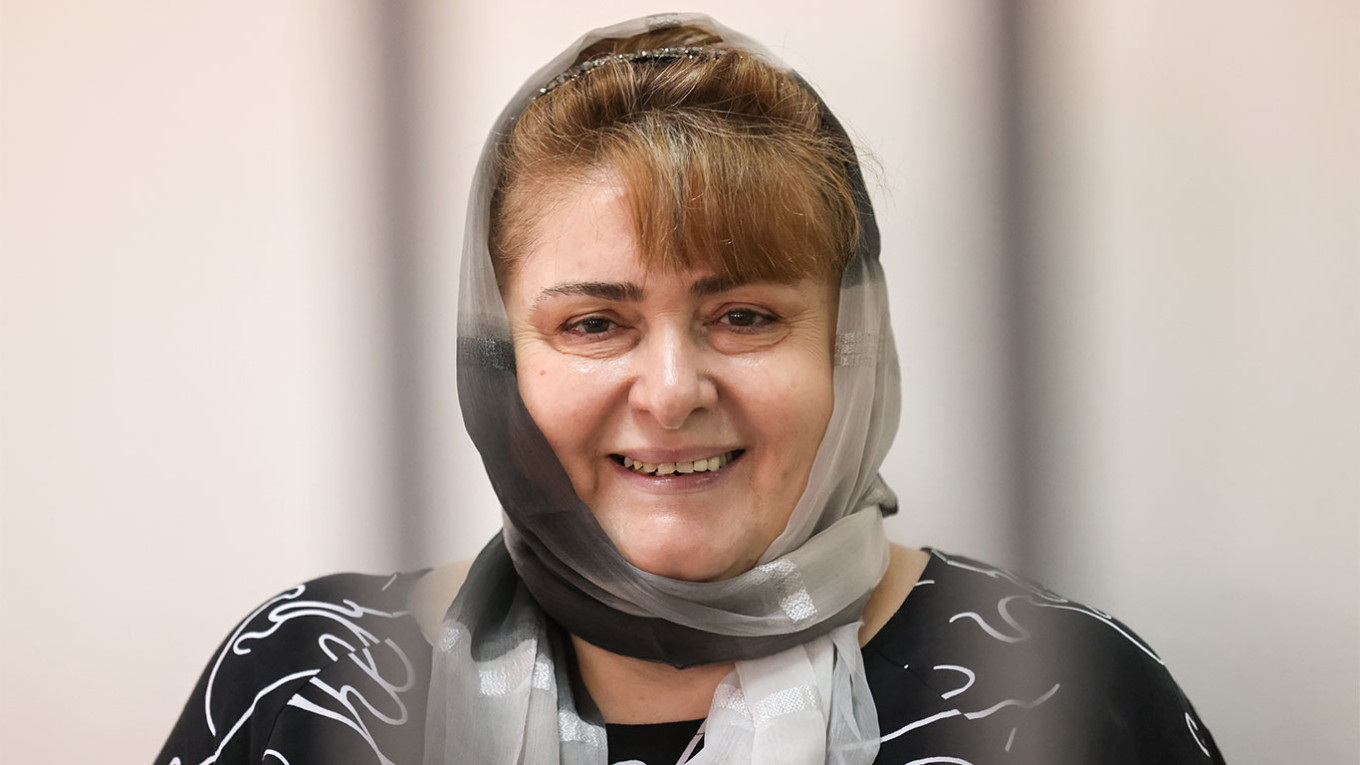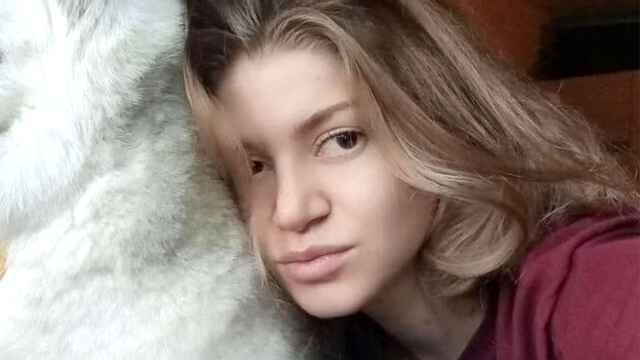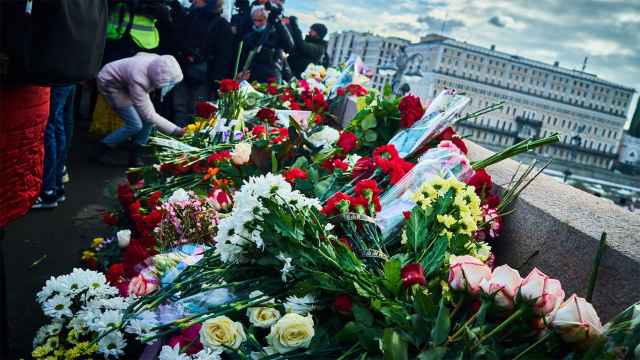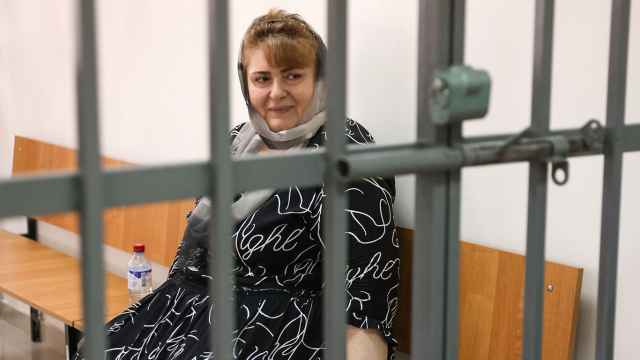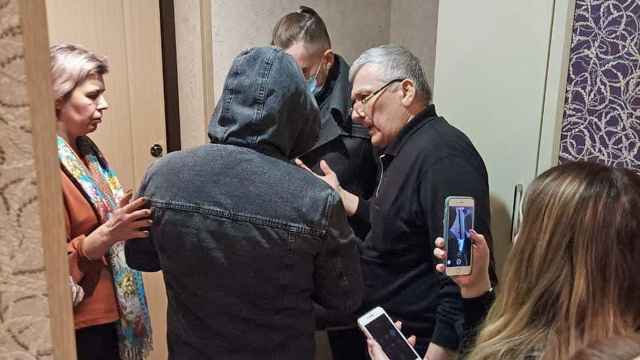Zarema Musaeva, the wife of retired federal judge Saydi Yangulbaev and mother of Chechen rights activist and lawyer Abubakar Yangulbaev, was sentenced to 5.5 years in prison by a Chechen court on Tuesday.
Musaeva, 53, was detained in Nizhny Novgorod in early 2022 in relation to a fraud case in Chechnya that human rights groups have described as politically motivated.
She was found guilty Tuesday on charges of assaulting the authorities and fraud, accusations she strongly denies.
Her sons, Abubakar, Ibragim and Baysangur, are all vocal critics of Chechen leader Ramzan Kadyrov, and the family has faced intensifying threats and persecution over the past decade.
Ahead of Musaeva’s sentencing, Abubakar Yangulbaev wrote this tribute to his mother:
My mother, Zarema Musaeva, was born and raised in Grozny. In 1991, amid the collapse of the U.S.S.R. and nationwide instability, she married my father, and a year later, I had already appeared. There was already instability in Chechnya because of the fight between the governments of Yeltsin and Dudaev. Russia was already carrying out raids in Chechnya and assassination attempts on officials, which plunged peaceful Grozny into terror. By 1994, the first hybrid war had already begun, and then by the end of the same year, the full-scale war between Russia and Chechnya, where officially, Russia was conducting a “special operation” to restore order, and Chechnya was fighting for its independence. It was in 1991, at the age of 22, that my mother’s carefree childhood and youth ended, and one of the most difficult adult lives began.
Neither my father nor my mother went anywhere outside Chechnya during the war, and for the first time we lived together in the basement of our apartment building in the center of Grozny, where there were also Tatars, Russians and Ingush. The first war lasted a long time. Russian violence escalated, and society radicalized in response. The first war ended with Chechnya’s victory in 1997. But by the end of 1999, the second war had already started. My parents did the same as they did during the first war: they did not leave Chechnya, not wanting to leave their parents alone in the war. They even refused the opportunity to emigrate to Europe or America when they were offered to do so by their influential friends there.
Mom gave birth and raised us in the midst of collapse, war and destruction. Her main strict emphasis was on our education and upbringing. She along with my father provided us with security, food, clothes, shoes and education, which at that time was extremely difficult and important. And even when Russian soldiers — whom the population feared for their torture, murder and other abuses — came into our home, she set boundaries and forbade them, for example, to enter the house in dirty military boots or touch food. From this one instance from my childhood, I clearly associated her as a bear-woman who would protect us even in front of heavily armed Russian soldiers.
The five-year period from 2010-2015 was the only normal time for our family. People were generally busy with their own affairs, but of course, there were also clashes, such as the attack on the village of Kadyrov in 2010 or the mini-war in Grozny on Dec. 4, 2014, when the CTO (counter-terrorist operation) regime was declared in the city for the first time since 2008. But if we didn’t pay attention to these isolated clashes, our family was like any other: father worked, the kids went to school and mom did the housework.
The year 2014 became a turning point for Chechnya due to the annexation of Crimea and the war in Donbas. Kadyrov started to push through not just anti-terrorist initiatives, but also political ones, demanding support. All who were against Kadyrov and his regime were considered potentially dangerous and proactively prosecuted, for example, for human rights activities or for comments on the internet.
The change in the course of the repressive machine also affected our family. In 2015, my brother, my father and I were kidnapped and taken to the Residence of Kadyrov, where we were beaten because of humorous comments about the Kadyrov family by third unidentified persons under posts on my brother's page. My mother already understood that this was the beginning of another depressive and difficult time. I was 23 years old at the time, the same age that my mother was when I was born. And I felt like I was thrown into a dangerous adult world. I saw how tired my parents were of fighting and I decided that it was now my turn to fight for them and our family.
Life was again destroyed. Because of the conflict with Kadyrov, no place would hire me, many refused to cooperate. They, too, were afraid of getting caught in the authorities’ line of fire. I went from one temporary contract to another, working independently as a legal representative for civil cases. But this wasn’t enough. In Chechnya, there were no longer pathways toward progress. And on one of these days when I was losing heart, mother consoled me with words: “Mansur, we survived two wars, and who is this Kadyrov? Just do all that is possible — God will do the impossible!” This statement would stay with me forever.
And when, in 2017, the story of persecution repeated and they kidnapped my brother and locked him in the detention center on fake criminal charges, my mother, father and I, after a calm discussion, decided to fight for ourselves. We immediately appealed to human rights activists and independent journalists, secured our family’s evacuation, found qualified lawyers for my brother, and I got a job as a lawyer in the Committee Against Torture, to fight not only for my family but also for the rest who, like us, were repressed by the authorities.
Outside of Chechnya, it was no easier in the rest of Russia either. If at home, I was one of my own, but a leper, then in Russia I was a stranger. Domestic chauvinism followed me everywhere: renting an apartment, interacting with strangers, and even when buying a car. The seller, having learned my nationality, asked where I work. I replied: “At the Committee Against Torture,” to which he replied: “Is this a terrorist organization?” And each stop by a traffic police officer was accompanied by a demand to open the trunk and questions if I had a grenade launcher or a machine gun. Of course it was disgusting. But my mother reassured me and asked me to be above this. She advised me to wear our nationality like armor and to not react, as reacting was a sign of weakness.
As a result, we achieved the release of my brother after a year and a half, and we took him out of Chechnya to Nizhny Novgorod. And then, at the beginning of 2021, I took both brothers to Europe to the safest place, and I myself remained to prepare my parents and sister for their escape.
But on Dec. 20, the Kadyrov regime kidnapped almost all the relatives of many opposition activists and human rights activists. Among mine, they kidnapped up to 50 people and kept some of them for up to one month, until they renounced us. On Dec. 28 of the same year, they detained me, searched my apartment and took me in for interrogation. During the interrogation, they directly hinted that they would take me to Chechnya, where I would disappear, referring to other cases where dissidents were tortured and killed. I managed to lull their vigilance and convince them that I did not resist and that I myself could come to Chechnya, especially since I was still working in the republic, despite constant threats. On the same day that they let me out of the CPE building, I flew to Georgia and made it clear that I was not going to return and cooperate. In response to my actions, 23 days later, on Kadyrov’s orders, his security forces kidnapped my mother, knowing about my strong connection with her. At the time of the abduction, for the country, the scoundrel Chechen Kadyrov was kidnapping the Russian wife of a federal judge. And for our family, this is a Russian official, a Hero of Russia, who kidnapped our Chechen mother and declared a vendetta against us. It felt just like in the old times when this same country was bombing us with the aim to kill.
By kidnapping her, they have taken our heart.
A Message from The Moscow Times:
Dear readers,
We are facing unprecedented challenges. Russia's Prosecutor General's Office has designated The Moscow Times as an "undesirable" organization, criminalizing our work and putting our staff at risk of prosecution. This follows our earlier unjust labeling as a "foreign agent."
These actions are direct attempts to silence independent journalism in Russia. The authorities claim our work "discredits the decisions of the Russian leadership." We see things differently: we strive to provide accurate, unbiased reporting on Russia.
We, the journalists of The Moscow Times, refuse to be silenced. But to continue our work, we need your help.
Your support, no matter how small, makes a world of difference. If you can, please support us monthly starting from just $2. It's quick to set up, and every contribution makes a significant impact.
By supporting The Moscow Times, you're defending open, independent journalism in the face of repression. Thank you for standing with us.
Remind me later.



